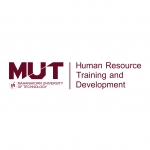โครงการอบรม C++ Programming for Beginners รุ่นที่ 2

หลักการและเหตุผล
การเขียนโปรแกรมด้วย C++ เป็นหลักสูตรที่เหมาะสำหรับผู้ที่ต้องการเริ่มต้นศึกษาเกี่ยวกับการเขียนโปรแกรมด้วยคุณสมบัติของตัวภาษา C++ ที่สามารถทำงานได้ทั้งในรูปแบบฟังก์ชัน สำหรับการเริ่มต้นในการเขียนโปรแกรม และยังสามารถทำงานในรูปแบบของการเขียนโปรแกรมเชิงวัตถุ (Object-Oriented Programming) ซึ่งเป็นพื้นฐานสำหรับการเขียนโปรแกรมอื่นๆ เช่น Java, Visual C#, Visual C++ หลักสูตร C++ จึงสามารถเรียนได้ทั้งผู้ที่ไม่เคยเขียนโปรแกรมมาก่อน หรือผู้ที่เคยเขียนโปรแกรมด้วยภาษา C มาแล้ว และต้องการศึกษาเพิ่มเติมในส่วนที่เกี่ยวกับการเขียนโปรแกรมเชิงวัตถุ ภาษา C++ จึงเหมาะสมกับการศึกษาด้านการเขียนโปรแกรมในทุกระดับ ผู้เรียนจะได้เรียนรู้ถึงการกำหนดตัวแปร ฟังก์ชัน คลาส ออปเจกต์ และคุณสมบัติอื่นๆ ของการเขียนโปรแกรมเชิงวัตถุ ซึ่งประกอบไปด้วย Encapsulation, Polymorphism และ Inheritance รวมถึงคุณสมบัติอื่นๆ ที่มีอยู่ใน C++ เช่น Multiple Inheritance, Template, Standard Template Library เป็นต้น
วัตถุประสงค์ 1. เพื่อให้ผู้เข้าอบรม ได้มีความรู้ความเข้าใจในการเขียนโปรแกรมภาษา C++ 2. เพื่อให้ผู้เข้าอบรม ได้ฝึกปฏิบัติและสามารถนำไปประยุกต์ใช้งานได้จริง 3. เพื่อให้ผู้เข้าอบรม มีความรู้ในการเขียนโปรแกรมอื่นได้ หัวข้อการฝีกอบรม วันที่ 1 : 1. ANSI C++ Fundamentals • Block Structure of C++ Programs • Fundamentals of Syntax • Built in Data Types • The Preprocessor and Macros • Standard Runtime Libraries and Header Files • Organizing C++ Source Files • Integrating C and C++ Projects • Using C in C++ 2. Data Types, Storage, Classes, and Scope • Data Types and Qualifiers • Constants and String Literals • Static versus Automatic Storage • Scope and Variables • Initialization and Assignment • Enumerated Types • The bool Type • Constant Storage • Pointers to Constant Storage • Constant Pointers • References • Constant Reference Arguments • Volatile Data • Global Data 3. Operators and Expressions • Arithmetic, Logical, and Bit Operators • Precedence and Associativity Assignment • Type Conversion Rules • Type Casting 4. Flow Control Constructs • Conditional Constructs: if, switch • Looping Constructs: while, do, for • Programming Style 5. Pointers • Advantages of Pointers • Uses of Pointers • Declaring Pointers • Pointer and Address Arithmetic • Initializing and Dereferencing Pointers • Pointers versus Arrays 6. Functions • Purpose of Functions • Functions versus Inlining • The Argument Stack • Passing by Value • Passing by Reference • Declaring External Functions • Function Prototypes and Type Checking • Default Function Data Types • Function Overloading • Problems with Function Overloading • Name Resolution • Promotions and Conversions • Call by Value • Reference Declarations • Call-by-Reference and Reference Types • References in Function Return • Constant Argument Types • Conversion of Parameters Using Default Initializers • Providing Default Arguments • Inline Functions วันที่ 2 : 7. Strings in C++ • Character Strings • The String Class • Operators on Strings • Member Functions of the String Class 8. Exceptions • Types of Exceptions • Trapping and Handling Exceptions • Triggering Exceptions • Handling Memory Allocation Errors 9. Streaming I/O • Streams and the iostream library • Built-in Stream Objects • Stream Manipulators • Stream Methods • Input/Output Operators • Character Input • String Streams • Formatted I/O • File Stream I/O • Overloading Stream Operators • Persistent Objects 10. Templates • Purpose of Template Classes • Constants in Templates • Templates and Inheritance • Container Classes • Use of Libraries 11. The Standard Template Library • STL Containers • Parameters Used in Container Classes • The Vector Class • STL Algorothms • Use of Libraries 12. Introduction to Object Concepts • The Object Programming Paradigm • Object-Orientated Programming Definitions • Information Hiding and Encapsulation • Separating Interface and Implementation • Classes and Instances of Objects • Overloaded Objects and Polymorphism วันที่ 3 : 13. Declaring and Defining Classes • Components of a Class • Class Structure • Class Declaration Syntax • Member Data • Built-in Operations • Constructors and Initialization • Initialization vs. Assignment • Class Type Members • Member Functions and Member Accessibility • Inline Member Functions • Friend Functions • Static Members • Modifying Access with a Friend Class 14. Operator Overloading • Advantages and Pitfalls of Overloading • Member Operator Syntax and Examples • Class Assignment Operators • Class Equality Operators • Non-Member Operator Overloading • Member and Non-Member Operator Functions • Operator Precedence • The this Pointer • Overloading the Assignment Operator • Overloading Caveats 15. Creating and Using Objects • Creating Automatic Objects • Creating Dynamic Objects • Calling Object Methods • Constructors • Initializing Member consts • Initializer List Syntax • Allocating Resources in Constructor • Destructors • Block and Function Scope • File and Global Scope • Class Scope • Scope Resolution Operator • Using Objects as Arguments • Objects as Function Return Values • Constant Methods • Object Copying and Copy Constructor • Automatic Copy Constructor • Conversion Constructor 16. Dynamic Memory Management • Advantages of Dynamic Memory Allocation • Static, Automatic, and Heap Memory • Free Store Allocation with new and delete • Handling Memory Allocation Errors 17. Inheritance • Inheritance and Reuse • Composition vs. Inheritance • Inheritance: Centralized Code • Inheritance: Maintenance and Revision • Public, Private and Protected Members • Redefining Behavior in Derived Classes • Designing Extensible Software Systems • Syntax for Public Inheritance • Use of Common Pointers • Constructors and Initialization • Inherited Copy Constructors • Destructors and Inheritance • Public, Protected, Private Inheritance 18. Polymorphism in C++ • Definition of Polymorphism • Calling Overridden Methods • Accessing Overridden Methods • Virtual Methods and Dynamic Binding • Virtual Destructors • Abstract Base Classes and Pure Virtual Methods
คุณสมบัติของผู้เข้าอบรม
1. ผู้ที่ต้องการเริ่มต้นเขียนโปรแกรมด้วยคุณบัติของภาษา C++ 2. ผู้ที่สนใจนำความรู้ไปเขียนโปรแกรมอื่นๆ ต่อไป
วิทยากร
รศ.ดร. หมัดอามีน หมันหลิน



